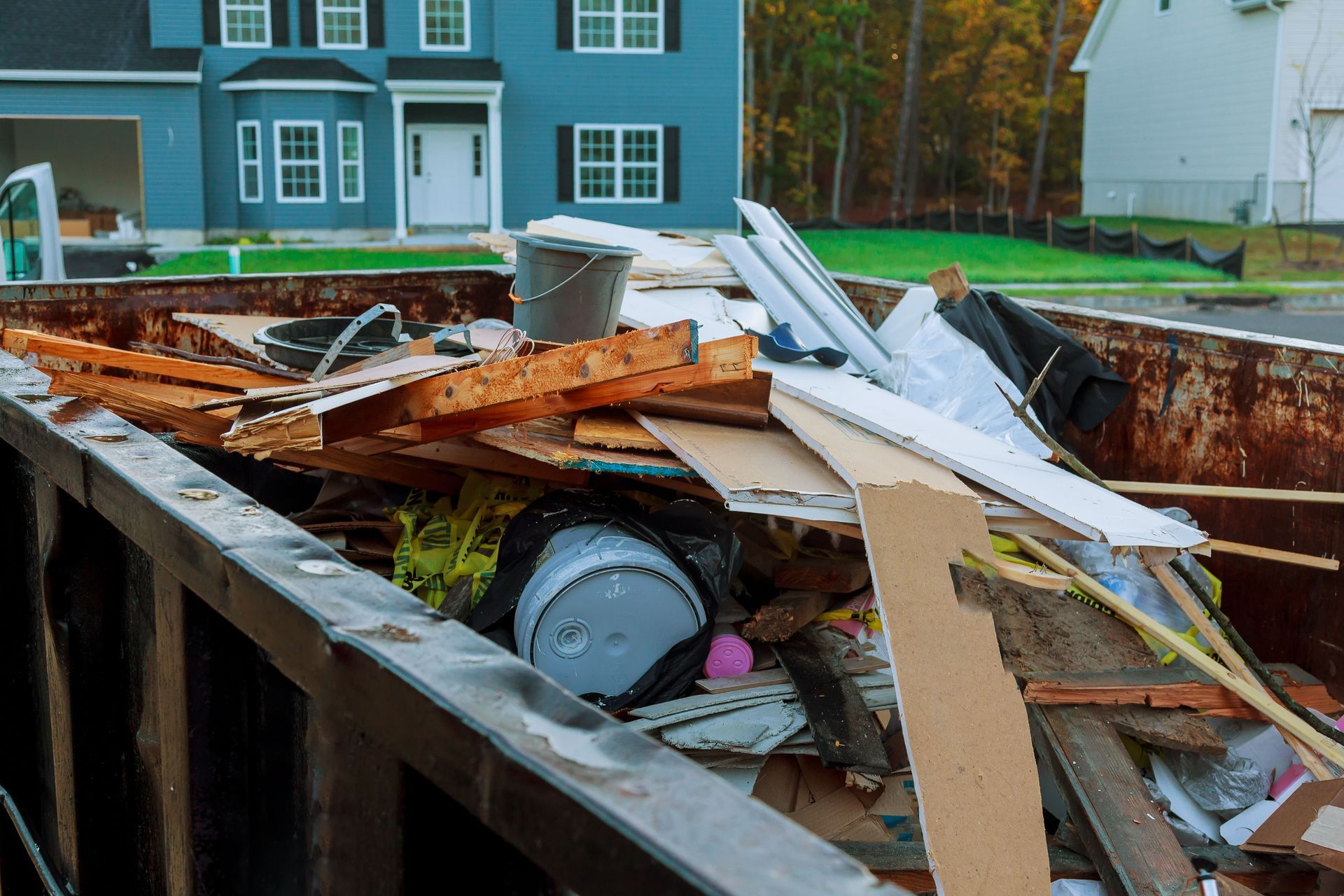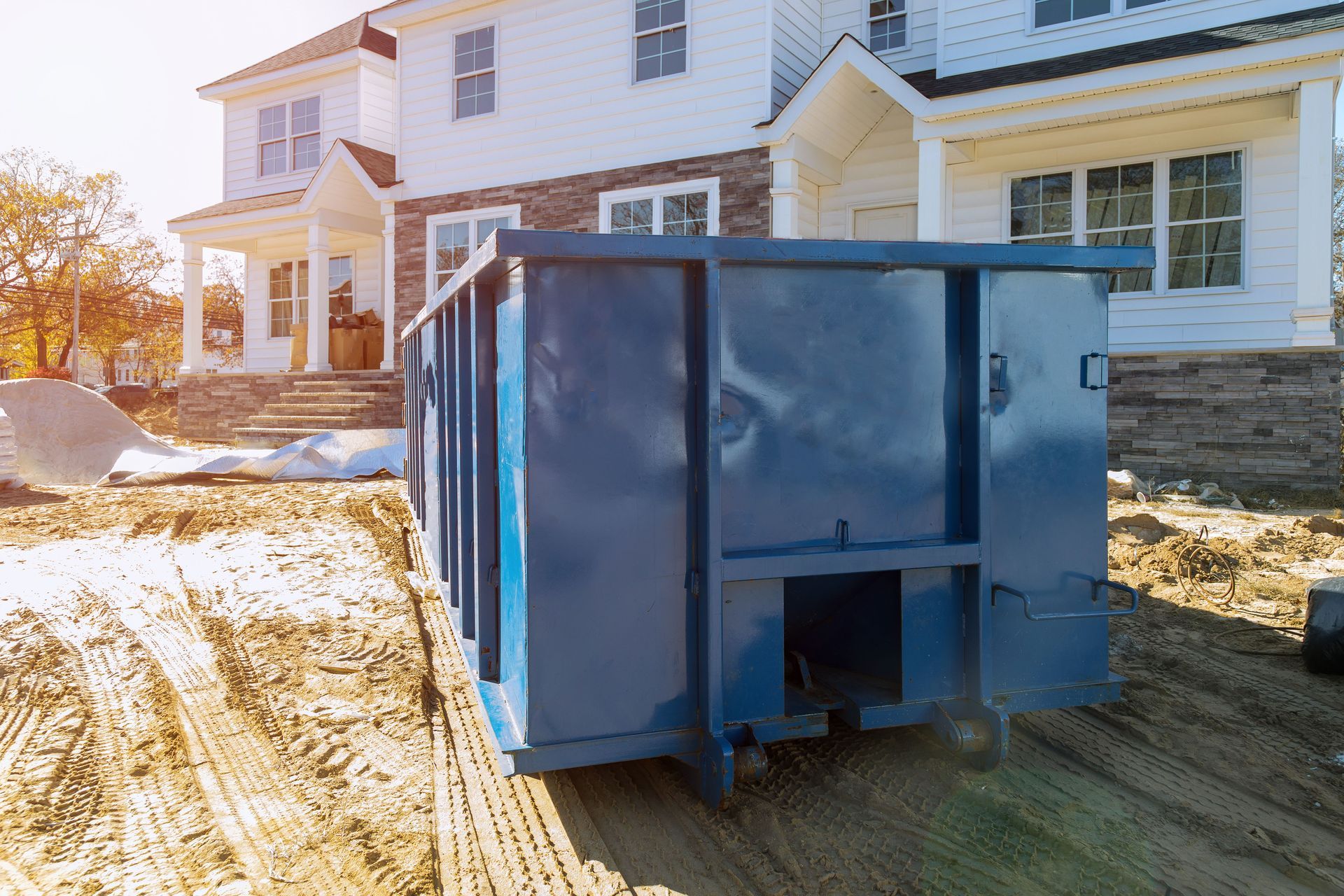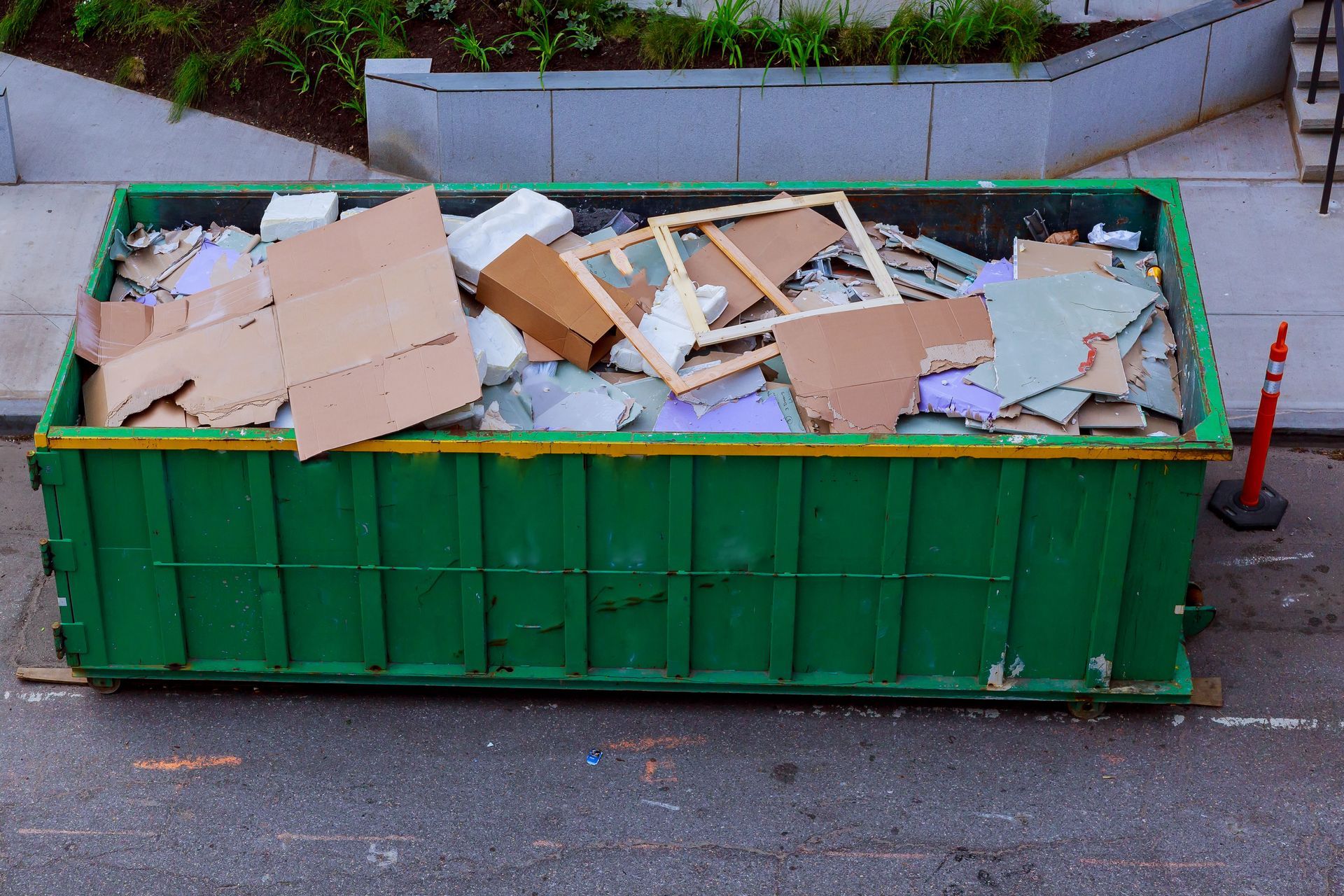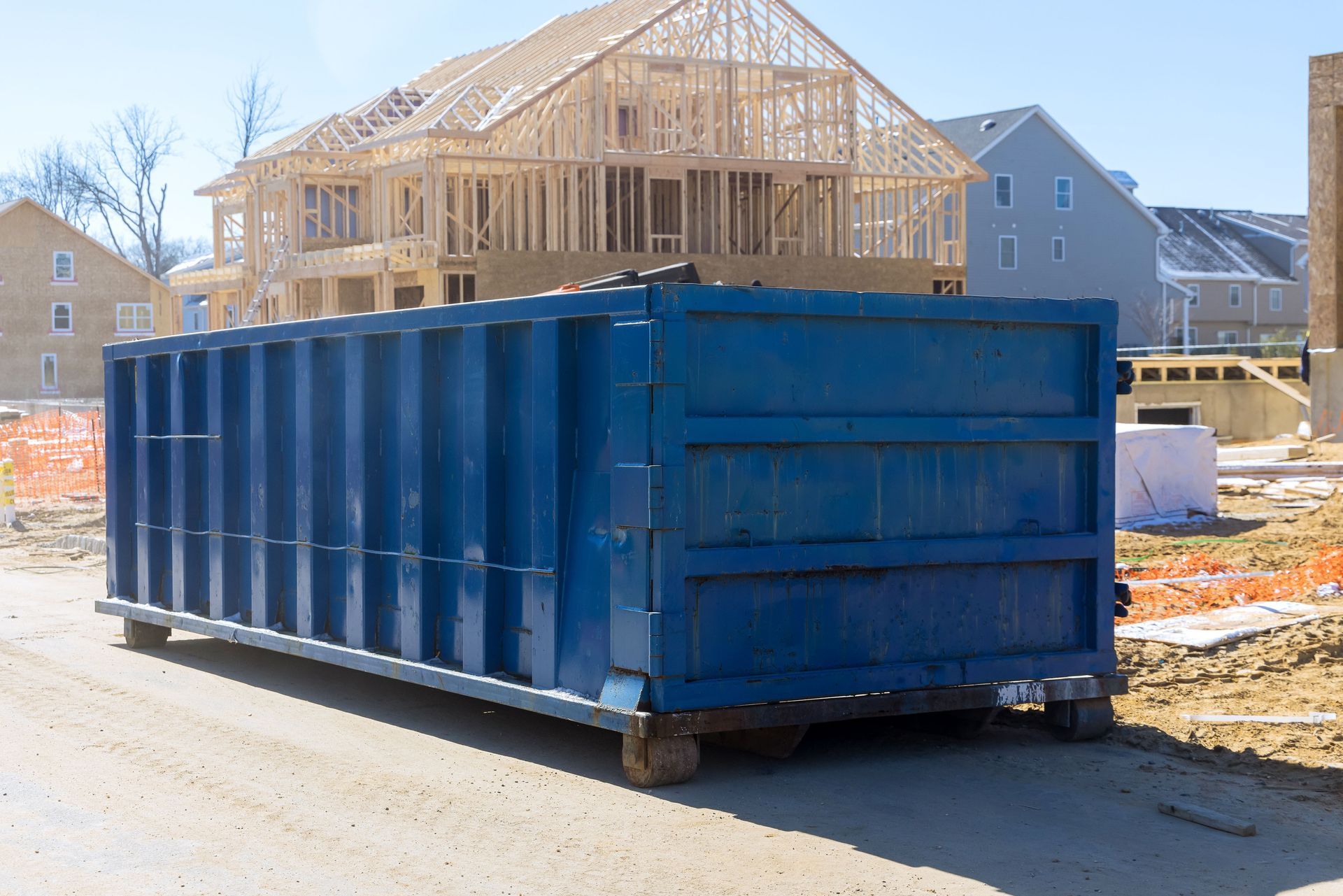The Complete Guide to Roll Off Dumpster Rental for Your Next Project
No matter the size of your project, one challenge remains the same: what to do with all the waste. Renovations, cleanouts, landscaping jobs, and construction projects can generate more debris than a standard trash service can handle. Piles of materials not only slow down progress but also create safety hazards and add unnecessary stress. That is where roll off dumpster rental can make a significant difference.
By renting a dumpster, you have a reliable way to contain and remove waste without multiple trips to the landfill. The process is simple, cost-effective, and adaptable to both residential and commercial needs. It is no surprise that demand for these services is on the rise, as the dumpster and roll-off container market is expected to reach $998.9 million by 2033, according to Fact. MR. This growth highlights how essential roll off dumpster rental has become for efficient project management and responsible waste disposal.
This complete guide will walk you through everything you need to know about roll off dumpster rental, including what it is, how to choose the right size, the benefits, cost factors, and how to prepare for delivery. By the end, you will know exactly why this solution could be a game-changer for your next project.
Explaining Roll Off Dumpster Rental
Roll off dumpster rental refers to the temporary use of large, rectangular containers designed to handle significant amounts of waste. These dumpsters are called “roll off” because they are delivered and picked up by special trucks that roll the container off the back onto the ground.
Unlike small trash bins or commercial dumpsters that stay in fixed locations, roll off dumpsters are mobile, versatile, and sized for larger-scale projects. They can handle a wide range of debris, including construction waste, old furniture, yard materials, and general household junk.
Several types of roll off dumpsters are available depending on the project. Standard construction dumpsters are built for heavy debris like concrete, brick, and roofing shingles. Residential-friendly dumpsters are often slightly smaller and designed to fit in driveways without causing damage. Specialty dumpsters may also be used for projects involving hazardous materials, though those require specific handling.
In short, roll off dumpster rental offers a flexible, scalable way to manage waste across residential, commercial, and industrial settings.
Selecting the Right Size for Your Dumpster
One of the most important decisions in the roll off dumpster rental process is selecting the appropriate size. Ordering a container that is too small can result in overflow, while choosing one that is too large can lead to unnecessary costs. Dumpsters are typically measured in cubic yards, and our sizes range from 10 yards to 40 yards.
In our experience, a 10-yard dumpster is often sufficient for small cleanouts or minor remodeling projects, such as clearing out a single room or disposing of yard waste. A 25-yard dumpster is one of our most popular sizes, suitable for medium-scale projects like kitchen remodels, basement cleanouts, or shingle roof replacements. For larger jobs, including whole-home renovations, commercial construction, or extensive demolition, we recommend a 30 or 40-yard dumpster.
When choosing, it helps to estimate the volume of waste your project will generate. If in doubt, it is generally better to select the larger size, as overfilling a dumpster may lead to additional fees or safety hazards. Many companies offering roll off dumpster rental provide sizing guides or consultations to help customers make the right decision.
Exploring the Benefits of Renting a Dumpster
Opting for roll off dumpster rental brings several significant advantages to any project. First and foremost is convenience. Instead of making multiple trips to the landfill or overfilling small trash bins, you have a single, central location where all waste can be deposited. Once full, the rental company handles pickup and disposal, saving you time and effort.
Cost-effectiveness is another major benefit. The upfront cost of roll off dumpster rental often proves lower than the combined expense of gas, disposal fees, and time spent hauling debris yourself. For businesses, the savings in labor hours can be especially significant. There are also environmental benefits. Many rental companies sort through collected waste to recycle materials like wood, metal, and concrete.
By streamlining recycling, roll off dumpster rental helps reduce landfill usage and promotes sustainability. Finally, safety improves when waste is properly contained. Loose debris on job sites can cause accidents, injuries, or property damage. Having a designated place for disposal keeps the work environment cleaner and safer.
Understanding Cost Factors and Pricing
The cost of roll off dumpster rental depends on several variables. Understanding these factors can help you budget effectively and avoid surprises.
Location plays a key role in pricing. Urban areas often have higher disposal fees and transportation costs than rural locations. Similarly, local landfill or recycling regulations can affect how much it costs to process the waste once collected.
The duration of the rental also influences price. Standard rental periods range from a few days to a couple of weeks. Extending the rental may incur daily or weekly fees, though some providers offer flexible arrangements.
The type of material being disposed of is another consideration. Heavy materials such as concrete, dirt, or asphalt may require special containers or incur weight-based fees. By contrast, lighter household debris typically costs less to dispose of.
Dumpster size naturally affects the overall cost as well. Larger dumpsters cost more upfront but may be more economical than renting multiple smaller units. Most providers of roll off dumpster rental offer transparent pricing that includes delivery, pickup, and disposal. Still, it is wise to ask about potential extra charges, such as those for exceeding weight limits, overfilling the container, or disposing of restricted items.
Preparing for Your Dumpster Delivery
Proper preparation can make the delivery and use of your roll off dumpster rental smooth and stress-free.
First, choose a placement area that is accessible to the delivery truck. Driveways and construction sites are common locations. The surface should be flat, stable, and free of low-hanging wires or tree branches that might interfere with delivery.
Clear the space in advance. Move vehicles, equipment, or obstacles out of the way to allow the truck to maneuver easily. Remember that the container will need room not just for placement but also for safe removal once filled.
It is also smart to lay down plywood or boards if the dumpster will sit on asphalt or concrete. This precaution helps prevent scratches or dents from the container’s weight.
Finally, familiarize yourself with what can and cannot go in the dumpster. While most debris is acceptable, hazardous items like chemicals, electronics, or certain appliances may require special disposal. Knowing these rules before your roll off dumpster rental arrives will save time and prevent complications.
Whether you are planning a home renovation, clearing out clutter, or managing a large construction project, roll off dumpster rental offers a reliable way to handle waste. With options in various sizes, transparent pricing, and professional delivery and pickup, it is an efficient and cost-effective solution. As the market continues to grow toward nearly $1 billion in value by 2033, it is clear that this service is becoming an essential part of modern project planning.
By choosing
roll off dumpster rental, you streamline cleanup, enhance safety, and contribute to environmentally responsible waste management. For your next project, consider the convenience and peace of mind that comes with having the right dumpster on site. If you need a dumpster for your next project, call the team at Debris Box today!





Share On: